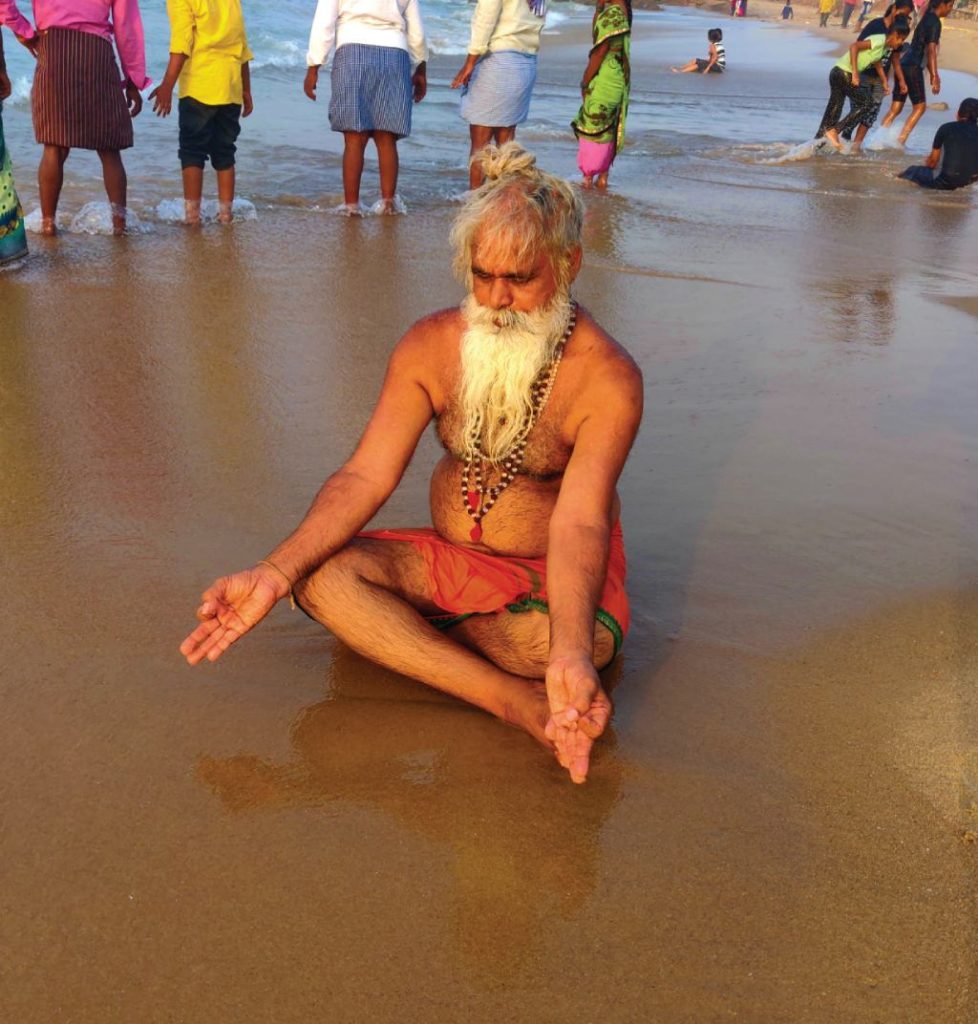On The Brink Of Possibility
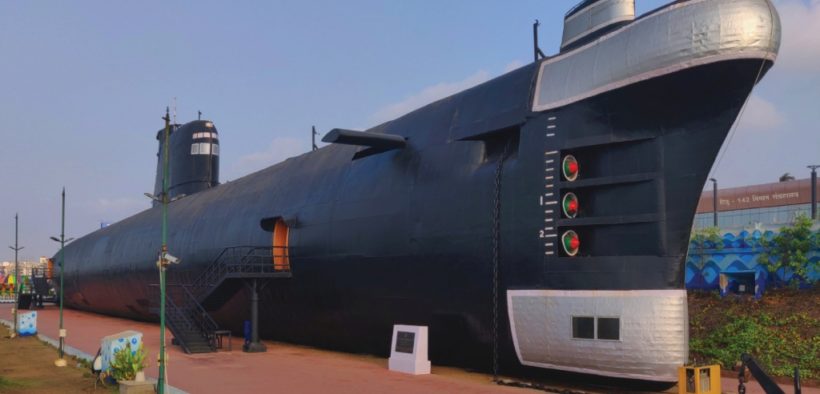
The spectacular VCR Park is another weapon in the ongoing fight against cancer
By Dr Purvish Parikh
The US called it a moonshot, a grand initiative to conquer cancer by bringing together all stakeholders and providing new resources. The inauguration of the VCR Park in Vizag on May 15 heralds a new era in the Make in India component of the global war against cancer. It was our privilege to witness this historic step. As the aircraft descended from 39,000 feet, it tilted to its left, navigating over the Bay of Bengal onto the coast of Andhra Pradesh. We almost flew over the famous dolphin head and enjoyed the waves pounding the ships docked in the port area. A quick Ola ride took us to our hotel on Varun beach. After checking in, we went for a stroll and were astounded by the gorilla menacingly holding up the lamppost with his fist ready to pound anyone who challenged him. It was an anticlimax when a crow descended on its shoulders, and perched there, looking nonchalantly into the distance.
A little further, we bumped into Dr Purvish Parikh, Group Oncology Director at Shalby Cancer and Research Institute. Knowing that he was also in Vizag for the same purpose, it was easy to strike up a conversation and we persuaded him for a photo at the Vizag selfie point. The conversation drifted towards how regular walks were necessary to keep fit and to keep noncommunicable diseases at bay. Just then a riot of electric blue and phosphorescent yellow caught our eyes. On the pavement was a row of bicycles for hire. Hexi, a cycle rental company, had made the beach road its focus of attention. its trademark cycles dotted a long stretch, allowing people to use their smartphone, the Hexi app and online payment with QR code scanner to enjoy the thrill of riding like the wind while keeping fit, all within a few metres of the pristine waters of the Bay of Bengal.
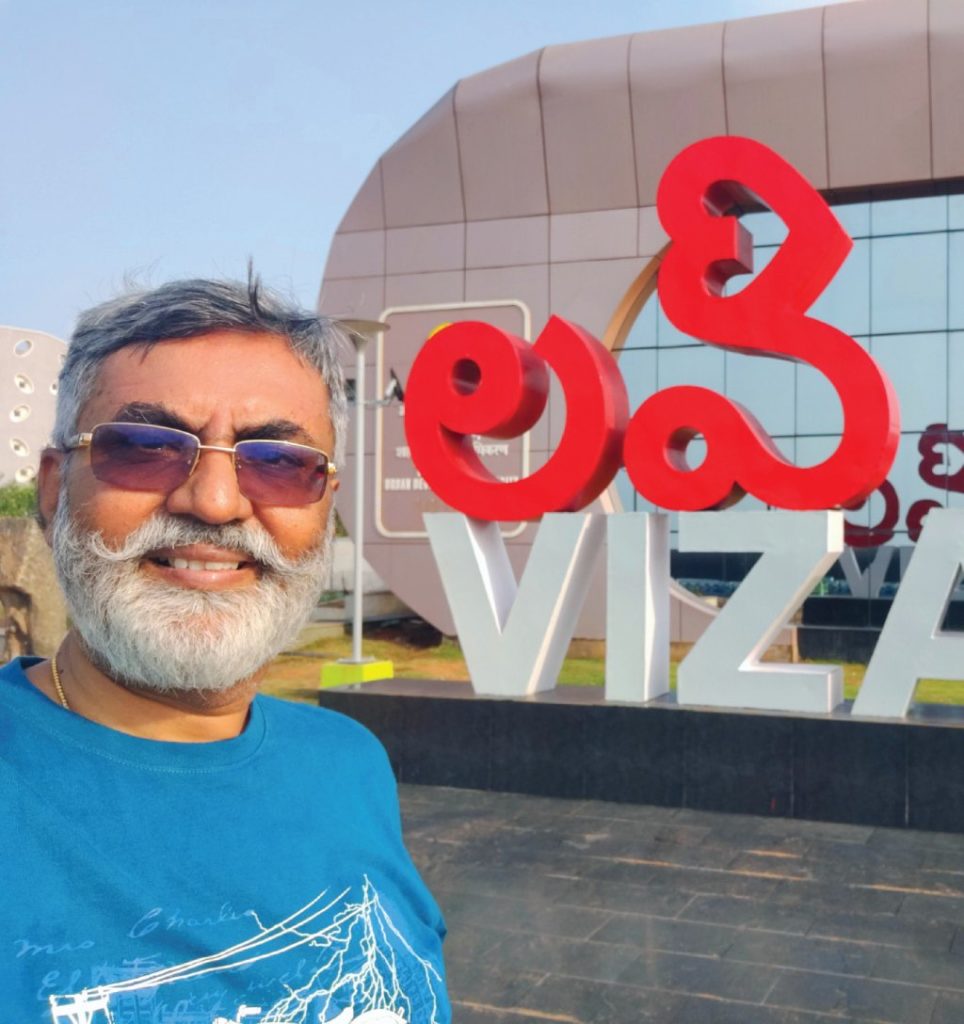
Read other Articles by Dr Purvish Parikh
Half a mile further up the road, we stood in awe of the Kursura Submarine Museum. From 1969 to 2001, 72 crew members had manned it in selfless service to our nation. Standing 90m long and carrying 22 torpedoes, it was able to dive to a depth of almost 300m and protect our seas from all enemies. A few steps away was the memorial to commemorate the 1971 victory at sea. As if the Indian Navy was not enough, on the opposite side of the beach road stood the recent addition inaugurated by President Ram Nath Kovind, a tribute to the India Air Force. This was the TU-142 Aircraft Museum that opened in December 2017. Humbled by the ultimate sacrifice of our nation’s armed forces, we silently saluted them, returned to our hotel and retired for the night.
The next day, we moved from defending our nation to defending our bodies against the scourge of cancer. Over the past few decades, monumental strides have been made in the diagnosis and treatment of common diseases. However, cancer is still considered an ominous diagnosis, associated with life-changing disruption, suffering and an uncertain future. For a large proportion of cancer patients, effective therapy remains out of their grasp. Government schemes like Ayushman Bharat have been a game-changer and helped craft dramatic access to treatment of several important diseases, especially among the underprivileged. But we are still far from an ideal healthcare solution. Cancer patients, of all classes, continue to be overwhelmed by shortcomings in the currently available options, making us painfully aware of unmet needs.
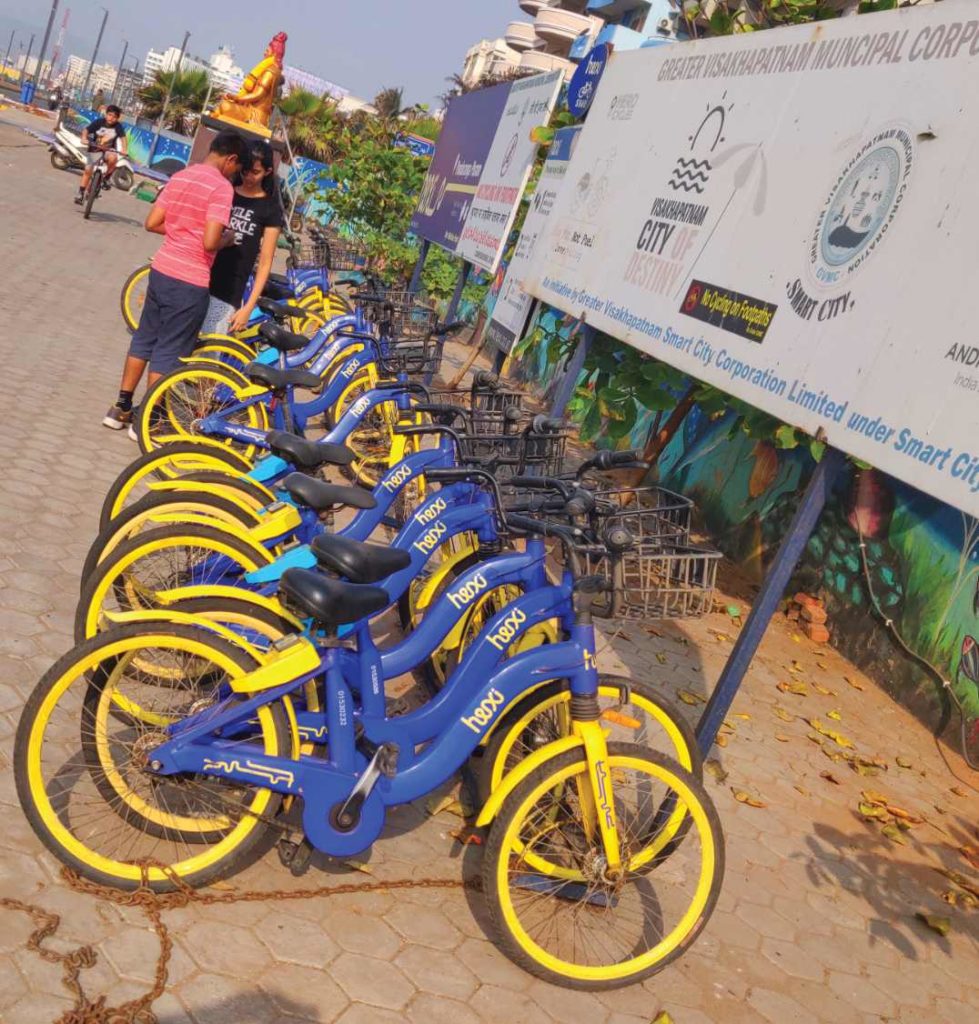
The advent of genomic medicine, nanotechnology and immunology have contributed to the era of targeted medicine, which offers a better response, better safety profiles and better outcomes. In other fields, technology gets cheaper with time, but in medicine, its application still remains prohibitively high. Advanced solutions often continue to be unaffordable and inaccessible to the masses. Such challenges are daunting, but not insurmountable. VCR Park is the right step in addressing these issues. Its vision is to create a cancer-focused “innovation district”. And the mission is to facilitate international research, development, and commercialisation of cost-effective solutions to improve cancer care for the developing world and beyond. By developing infrastructure, processes and common facilities, it brings together laboratories, cutting edge molecular techniques, artificial intelligence, bioinformatics, ancillary services (legal, intellectual property, contract manufacturing), funders and clinicians under one roof. Thus, VCR Park is already well on its way to achieving its value proposition of sharing its vision to develop a uniquely integrated and multidisciplinary ecosystem in collaboration with global leaders.
At the inauguration today, a galaxy of top-notch stakeholders were seen reiterating their commitment to the mission of VCR Park. We were delighted to see the close-knit group of carefully selected local and global partners (of impeccable reputation and proven track record) interacting as if they had been working together for years. 15,000 sq. ft building campus facing the beach in the middle of Vizag was already bubbling with oncology product development companies, technology and service provider companies, project management and business advisers.
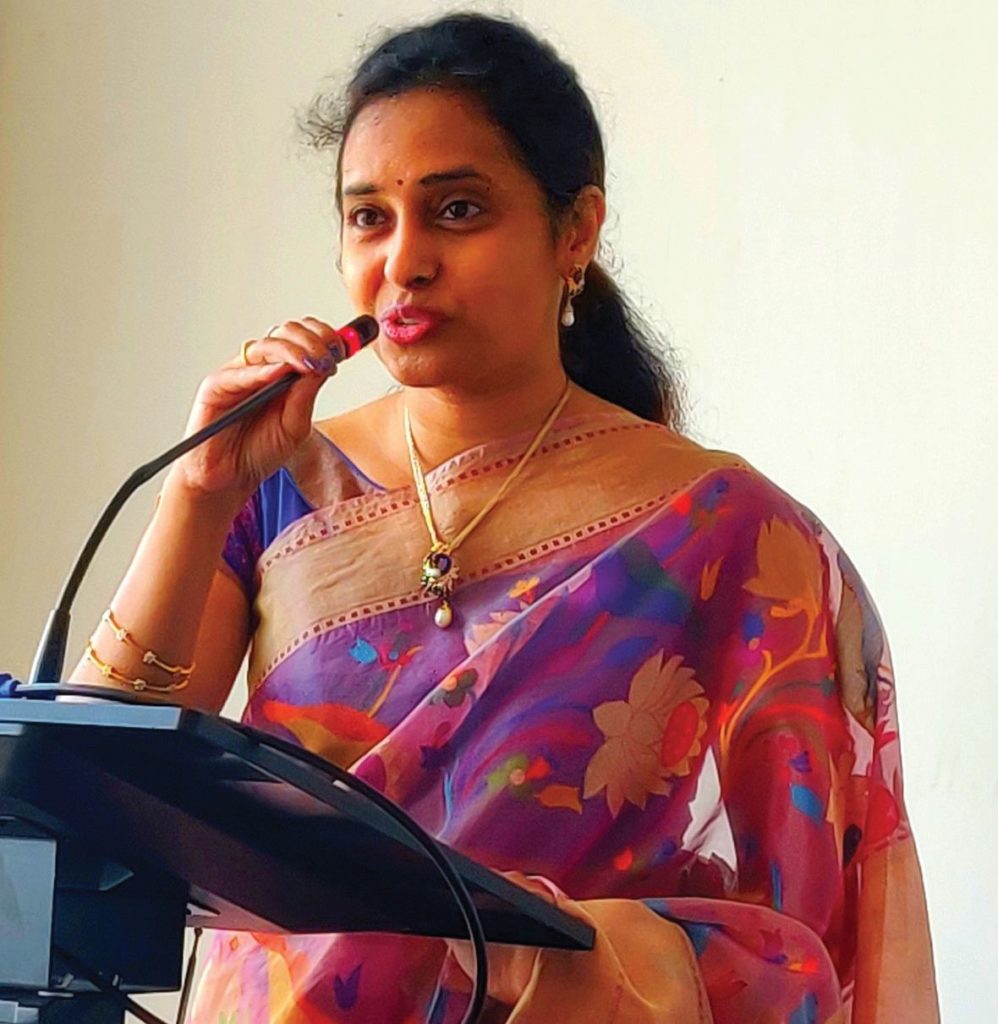
The single-minded dedication of Dr Himabindu Gaddipati, Founder and Director of VCR Park, made it the reality that it is today. This did not happen overnight. The spark of an idea in San Diego, USA, was carefully nurtured into a roaring flame that reached the shores of India over the last two years. Says Dr Gaddipati, “VCR Park is a holistic community of cancer-focused individuals and organisations who collectively leverage their expertise across various clinical, scientific, academic and commercial disciplines.” Hence, it is clear that this is India’s first cancer-focused facility, nay, an ecosystem that is not only evolutionary but truly transformative. Its unprecedented mission-focused collaboration through measurable joint goals and progress tracking makes it a state-of-the-art campus for very high-level discovery and development in the fight against cancer.
“VCR PARK IS A HOLISTIC COMMUNITY OF CANCER FOCUSED INDIVIDUALS AND ORGANISATIONS WHO COLLECTIVELY LEVERAGE THEIR EXPERTISE ACROSS VARIOUS CLINICAL, SCIENTIFIC, ACADEMIC AND COMMERCIAL DISCIPLINES.”
Dr Himabindu Gaddipati Founder and Director VCR Park
Cancer beware! India has now claimed its rightful place by developing world-class facilities with global applicability from a Tier 2 city on the eastern coast of Andhra Pradesh. Dr Loganathan Doraisamy, CTO of VCR Park, strongly feels the park is the first-of-its-kind physical ecosystem co-located in one campus for next-generation cancer research to serve the global population. He anticipates that that VCR Park will revolutionalise cancer cure and bring life-saving cancer medications to the masses at affordable costs. Dr Mandar Kulkarni, CEO of VCR Park was bright and beaming, even after having supervised the preparations till the wee hours. “I would like to mark the opening ceremony of VCR Park as an occasion and a platform that enables distinguished leaders to stand taller on each others’ shoulders to reach higher to accelerate a positive impact on the lives of cancer patients,” he says.
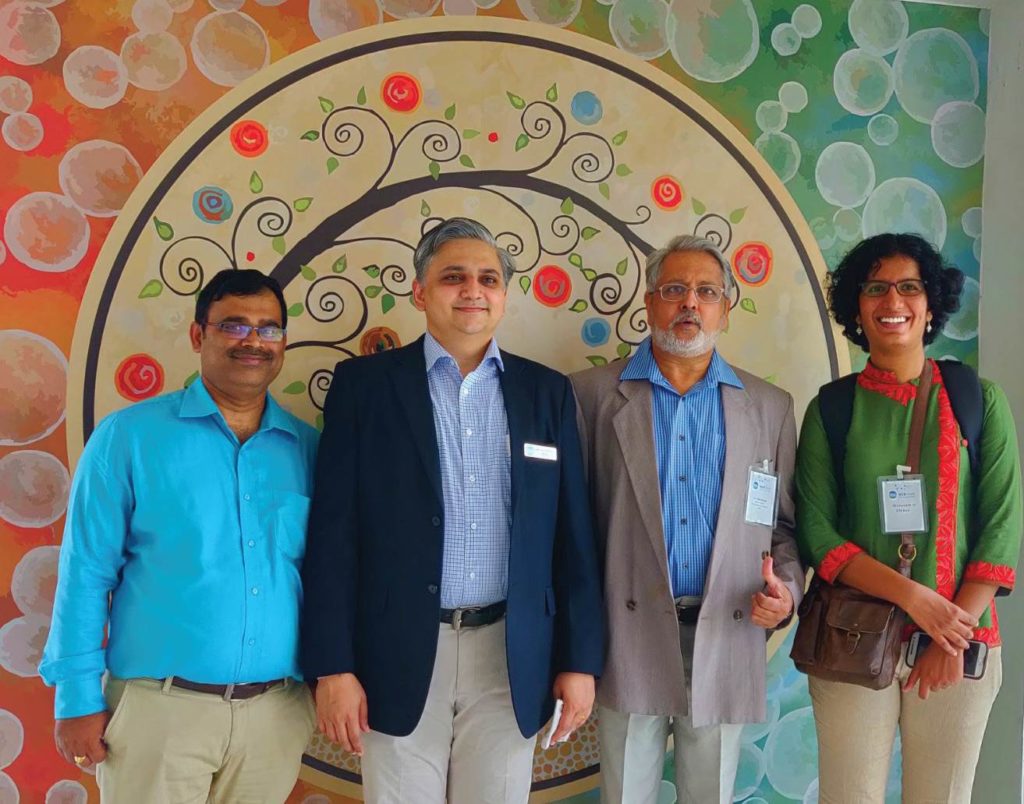
Dr Purvish Parikh presented his project to the esteemed gathering. “Colorectal cancer is a significant problem across the world, and also in India,” he stated. “We have identified that there are several crucial differences between such cancers in the right colon as opposed to the left colon. Further digging into existing literature led us to believe that micro-organisms in the gut could play a significant role in the development of colorectal cancer. Our project is unique because we are on the path to identifying the microbiome gene signature that will allow us to use a simple stool test for high-risk patients while their cancer is still in the curative stage. Ours will be a painless “poop” test that will be accurate and safe.” Dr Suresh Poosala, Founder and President of Oncoseek Bio, also addressed the gathering.
A key committee member of VCR Park, he shared his experience with BMS at his earlier job. Having contributed to the development of the immensely successful Nivolumab (a revolutionary drug in the armament of immunotherapy against cancer), he is exactly the kind of person who can bring in expertise that is valuable to VCR Park. “I recognise the true potential value of the VCR Park ecosystem, something currently not available in India,” he says. “I own a company that does research on personalised therapy in cancer and want to co-habit with other companies in VCR Park that complement what I want to do. This will allow one plus one to become eleven. We want to create PDX models (patient-derived xenografts) taking tumours from patients, grow them in nude mice and look at chemosensitivity three-dimensionally in vivo growing tumour. In India, ours is the first company to do this in vivo”.
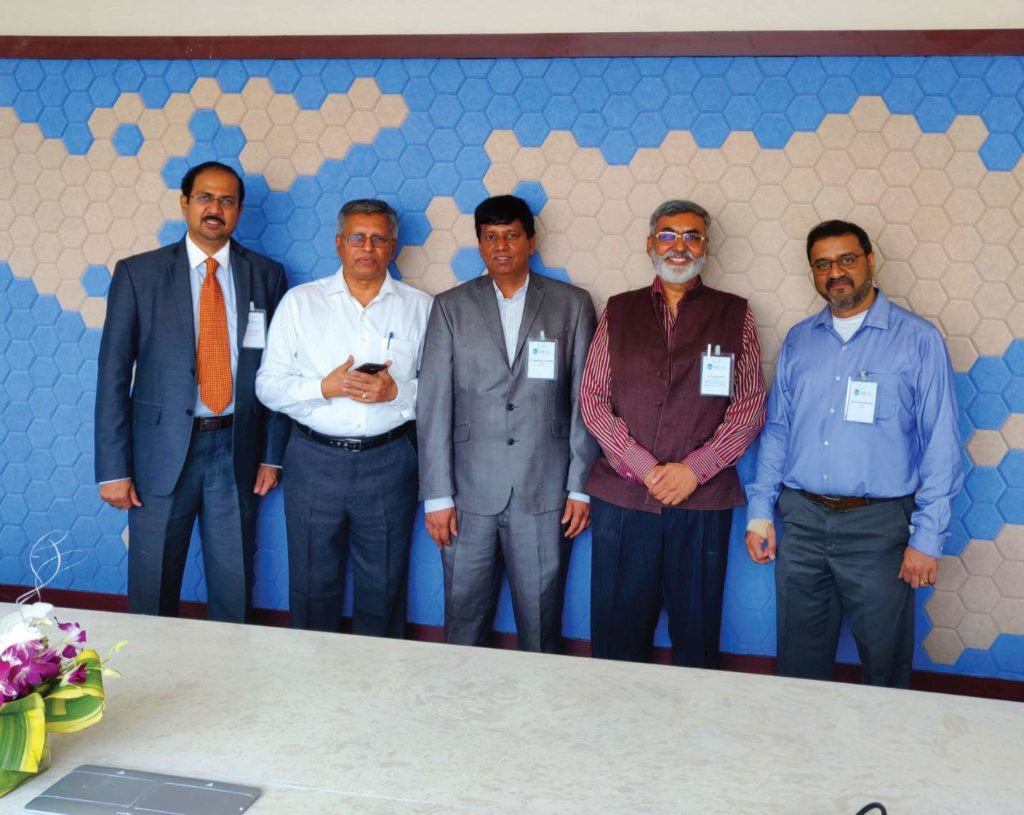
By the end of the formal presentations we were delighted to note that the following projects were already up and running in VCR Park:
- New Drug Development in Leukaemia.
- Nano formulation for various indications.
- Natural product characterisation for various indications.
- Proprietary Organoid Assay for Head and Neck Cancer.
- Micro endoscopic examination artificial algorithm for cervical cancer.
- Microbiome gene signature for colorectal cancer.
We also got the opportunity to speak to some of the stakeholders who had signed up to be part of the VCR Park. Dr Ram Datar, CEO, Circulogics, Miami, Florida, had travelled all the way to be part of the VCR Park inauguration. “Circulogics is automated circulating tumour cell capture device company,” he said. We already have ongoing projects at multiple locations in the US and two in Europe (Austria and France). We are in the process of entering into Asian markets, either through a service centre based at VCR Park or through clinical research collaborations. The uniqueness that we find with VCR Park is that they are bringing together stakeholders with nonoverlapping expertise, those who will complement each other. Also being strategically placed geographically, they can receive and process samples in 48 hours from anywhere in Asia. ([email protected])
Dr Ravi Nayar is dean, HCG institute of Academics & Research, Bengaluru. He firmly believes that academics and all forms of clinical and scientific activities are intimately intertwined. “VCR Park is a coming to life of a unique concept wherein networking takes primacy over infrastructure building,” he said. “HCG would benefit from being a partner given the wide reach of the network, and we hope to help the effort by involving ourselves in these academic activities. We look forward to increased interactions, and more such ventures, to help fast track India into the cutting edge of oncology practice in the coming years.
Pathik Divate, founder of the Pune-based Jehangir Clinical Development Centre has already developed a hospital-based academic research centre with capabilities of a full-scale CRO. He is already into end-to-end clinical research studies (phase 1 to 4 or validation studies) meeting international standards. The facility has been previously inspected by the US FDA and AAHRPP. It also has NABH accreditation. “With a track record of over 300 clinical trials across the entire spectrum (sponsored as well as academic: WHO, ICMR, etc.), we have gained DSR recognition,” he said. “Our vision is clear and so is that of VCR Park. This appealed to us. There is also a meeting of minds with Mandar, whom I know and trust since the last several years. This is why we are here!”
Balaji Bhayravbhatla, CEO and MD of Hylasco, said, “I have been in early-stage drug discovery for the last 30 yrs. Our company addresses the unmet need for high-quality research animals. Anyone who wants to move forward in oncology research must have a dossier that involves data from animal models. When I realised the importance of this need, I decided to set up our company in India. This is also why our company needs to be part of VCR Park.”
Senior medical oncologist Dr Govind Babu (till recent professor and head of medical oncology at Kidwai Memorial Institute of Oncology) said, “I chose to accept the invitation to be on the VCR Park board because it is so aligned with the needs of our country. I can see how bringing together academia and industry will lead to accelerated innovations in the field of cancer. I can see that I can contribute meaningfully to its goals and my specialisation will be put to appropriate use, even after retirement from Kidwai.”
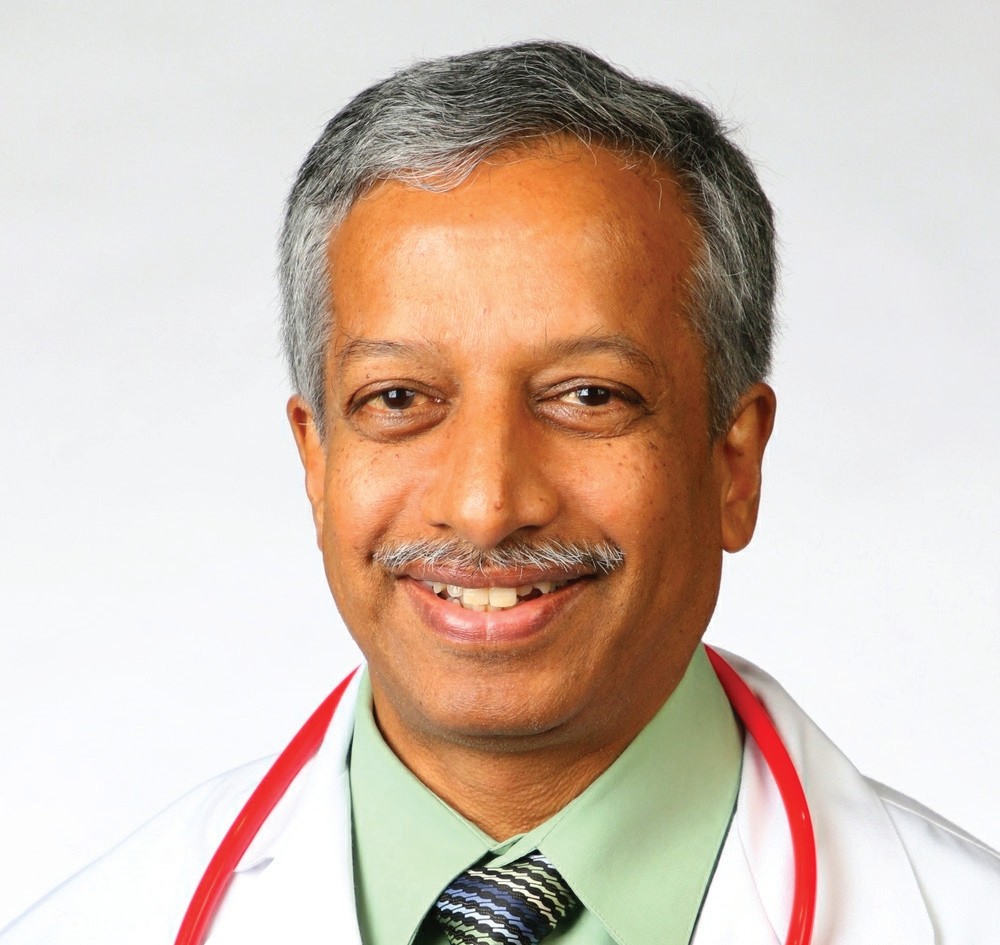
Dr Shruti Krishnan, who holds a masters degree in microbiology and a PhD in immuno-oncology from the University of Western Australia, Perth, returned to India in 2015. Two years ago, she was interviewed over the phone from the US and immediately joined VCR Park as R&D and Alliance Manager. Says Shruti, “Following the TGIF (The Global Innovation Forum) conference in February 2018, it has been a roller coaster ride. I am so excited that we have lined up projects with stakeholders scattered all over the world. This gives me an opportunity to learn so much more about cancer and the wonderful people working in the field. VCR Park is the place to be for cutting edge cancer-related work.”
By the end of the day, we were exhausted, awed and charged up!
- Exhausted not only by the summer but also by the intensity of the interactions among participants.
- Awed by the high level of discussion regarding international projects and the progress that had already been made even before the official inauguration of VCR Park.
- Charged up because the positive energy floating around engulfed us too.
We departed from Vizag knowing that a few good men and women have dedicated the rest of their lives to tackling cancer head-on. The future of meaningful cancer research, drug development and beyond was in capable hands. As our flight took off in an easterly direction, we dozed off, happy that our trip had been so productive
